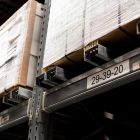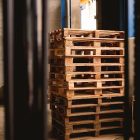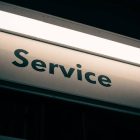In the bustling commercial landscape of Sydney, optimizing operational efficiency is crucial for business success. Forklifts play an essential role in many industries, facilitating the swift movement of goods within warehouses, construction sites, and manufacturing plants. When it comes to acquiring forklifts, businesses often face a crucial decision: should they rent or lease? This article delves into the nuances of forklift rental versus leasing, offering insights to help you determine the best option for your Sydney business.
Understanding Forklift Rental
What is Forklift Rental?
Forklift rental, also known as forklift hire, is a short-term arrangement where businesses can rent a forklift for a specific period. This option is particularly beneficial for companies that require forklifts for temporary projects or seasonal peaks in demand. The rental period can range from a few days to several months, providing flexibility to businesses with fluctuating needs.
Benefits of Forklift Rental
- Flexibility: Forklift rental offers unparalleled flexibility. Businesses can rent a forklift for as long as needed without long-term commitments. This is ideal for companies with seasonal or project-based requirements.
- Cost-Effective: Renting a forklift can be more cost-effective in the short term. There are no upfront costs associated with purchasing equipment, and maintenance is typically included in the rental agreement.
- Access to Latest Models: Rental services often provide access to the latest forklift models, equipped with advanced features and technology. This can enhance operational efficiency and safety.
- No Depreciation: Since the forklift is not owned by the business, there are no concerns about depreciation or resale value.
Drawbacks of Forklift Rental
- Higher Long-Term Costs: While rental is cost-effective in the short term, it can become expensive over extended periods. The cumulative rental fees may surpass the cost of leasing or purchasing a forklift.
- Limited Customization: Rental forklifts come as-is, with limited options for customization. This might not be suitable for businesses with specific requirements.
- Availability Issues: During peak seasons, the availability of rental forklifts might be limited, potentially causing operational delays.
Understanding Forklift Leasing
What is Forklift Leasing?
Forklift leasing is a long-term arrangement where businesses lease a forklift for an extended period, typically ranging from one to five years. Leasing offers a middle ground between renting and purchasing, allowing businesses to use the equipment without the financial burden of ownership.
Research online and look for the below:
- Forklift hire Sydney
- Rent a forklift Sydney
- Forklift rental Sydney
Benefits of Forklift Leasing
- Lower Monthly Payments: Leasing generally involves lower monthly payments compared to renting, making it a cost-effective option for businesses with long-term requirements.
- Ownership Option: Some lease agreements include an option to purchase the forklift at the end of the lease term. This can be advantageous for businesses looking to eventually own the equipment.
- Customization: Leasing allows for greater customization. Businesses can choose forklifts that meet their specific needs and preferences.
- Predictable Budgeting: With fixed monthly payments, leasing provides predictable budgeting, helping businesses manage their finances more effectively.
Drawbacks of Forklift Leasing
- Long-Term Commitment: Leasing involves a long-term commitment, which may not be suitable for businesses with fluctuating needs. Breaking a lease agreement can result in penalties.
- Maintenance Responsibility: While some lease agreements include maintenance, others may require the lessee to handle maintenance and repairs, adding to the overall cost.
- Depreciation Concerns: Although the business does not own the forklift, it may still be affected by depreciation if it decides to purchase the equipment at the end of the lease term.
Comparing Costs: Rental vs. Lease
Short-Term vs. Long-Term
The primary consideration when choosing between rental and leasing is the duration of your forklift needs. For short-term or occasional use, rental is often the more cost-effective and flexible option. However, for long-term use, leasing can provide significant cost savings and stability.
Initial Investment
Renting requires minimal initial investment, making it an attractive option for businesses with limited capital. Leasing, while involving a longer-term commitment, also requires lower upfront costs compared to purchasing.
Maintenance and Repairs
Maintenance and repair costs can significantly impact the total cost of ownership. Rental agreements typically include maintenance, reducing the burden on the business. Leasing agreements may vary, so it’s important to understand the maintenance responsibilities before committing.
Making the Right Choice for Your Sydney Business
Assessing Your Needs
- Duration of Use: Consider how long you need the forklift. For short-term or seasonal needs, rental is likely the better option. For long-term use, leasing may be more cost-effective.
- Budget: Evaluate your budget for both initial and ongoing costs. Rental may be more suitable for businesses with limited capital, while leasing offers predictable monthly payments for long-term use.
- Customization Requirements: Determine whether you need a forklift with specific features or customization. Leasing offers more flexibility in this regard compared to rental.
- Maintenance Capabilities: Assess your ability to handle maintenance and repairs. Rental agreements usually include maintenance, while leasing agreements may require you to manage these tasks.
Evaluating Providers
- Reputation: Choose a reputable provider with a track record of reliability and customer satisfaction. Look for reviews and testimonials from other Sydney businesses.
- Service Offerings: Compare the services offered by different providers, including maintenance, repair, and support. Ensure that the provider can meet your specific needs.
- Contract Terms: Carefully review the terms of the rental or lease agreement. Pay attention to details such as maintenance responsibilities, penalties for early termination, and options for extending or purchasing the equipment.
Why Choose Us?
Active Forklift stands out as the best provider for forklift rental and leasing in Sydney due to its commitment to customer satisfaction, extensive fleet of modern and well-maintained forklifts, and flexible rental and leasing options tailored to meet diverse business needs. With a strong reputation built on reliability and exceptional service, Active Forklift ensures that businesses can access the right equipment quickly and efficiently, enhancing operational efficiency while providing expert support and maintenance services.
We offer the below services:
- Forklift hire Sydney
- Rent a forklift Sydney
- Forklift rental Sydney
With competitive pricing and transparent contract terms further solidify our position as a trusted partner for businesses looking to optimize their material handling solutions.
Conclusion
Deciding between forklift rental and leasing requires careful consideration of your business needs, budget, and operational requirements. Both options offer distinct advantages and drawbacks, making it essential to evaluate your specific situation before making a decision.
For businesses with short-term or fluctuating needs, forklift rental provides flexibility and cost-effectiveness. On the other hand, forklift leasing is a better option for those with long-term requirements, offering lower monthly payments and customization options.
By understanding the nuances of both options and assessing your unique needs, you can make an informed decision that enhances your operational efficiency and supports your business goals in Sydney’s competitive market.





